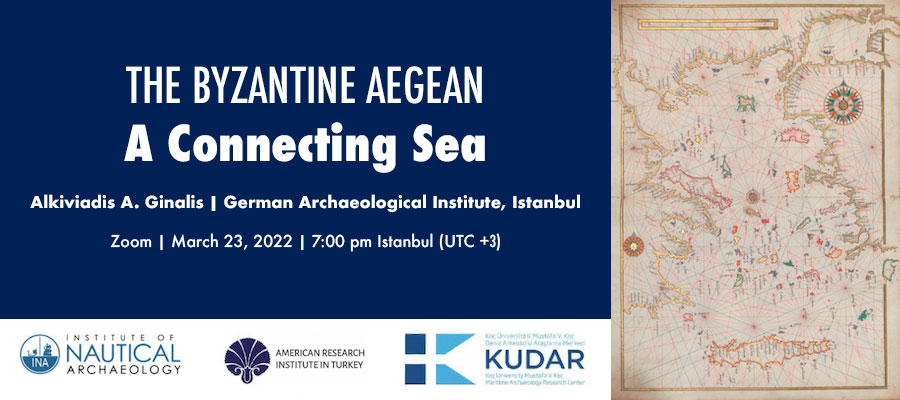The Byzantine Aegean: A Connecting Sea, lecture by Alkiviadis A. Ginalis (German Archaeological Institute, Istanbul), American Research Institute in Turkey via Zoom, March 23, 2022, 7:00 pm Istanbul (UTC +3)
The Aegean Sea has been a center of states and empires for millennia, acting as a bridge, a transition, or a barrier for the complex coasts and islands that define it. For the Byzantine Empire, the sea was also a heartland, a link to an imagined and idealized past, and a geographic passage between the wider Mediterranean and the Black Sea. For the centuries between Late Antiquity and the Medieval era, however, these shifting values were accompanied by dramatic changes in the Byzantine Empire itself – constant shifts in its boundaries, and serious alterations in state structure, human activity, and settlement patterns. Characterized by its maritime environment, the different islands and coastal areas of the Aegean therefore played crucial roles in economic, social, cultural and political interactions.
Archaeological research has revealed a broad spectrum of material culture that sheds light on various aspects of life in the Byzantine-era Aegean, as well as its social landscape in this period of transformation. In particular, evidence about the development of seafaring and harbour infrastructure – as gateways for communication and movement into this mutable environment – offer unique insights about the increasingly complicated maritime world of Late Antiquity.
Alkiviadis A. Ginalis is a Maritime Archaeologist and Byzantinist specialising in Mediterranean harbour studies and seafaring of the Roman Imperial to the Late Byzantine periods. He is Curator for Late Antique and Byzantine Archaeology at the German Archaeological Institute in Istanbul.
Cosponsored with the Institute of Nautical Archaeology (INA) and the Koç University Mustafa V. Koç Maritime Archaeology Research Center (KUDAR)
Advance registration required.
